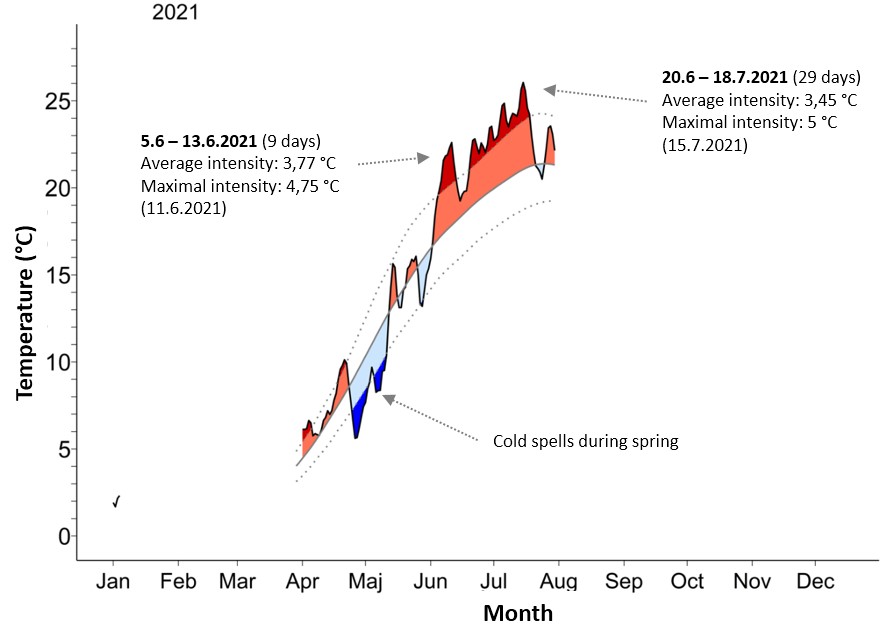12.8.2021
A whole month of heatwave in the sea this summer
It is not only on land that high temperatures have been registered this summer, but also at sea, water temperatures have been abnormally high. Two heatwaves have been registered at Åbo Akademi University’s biological research station at Husö this summer.
During the period June–July 2021, two marine heatwaves have been registered outside Husö Biological Station in Åland. The first took place between 5–13.6.2021 (9 days) and the other between 20.6–18.7.2021 (29 days).
“The second heatwave is also the longest heatwave registered since measurements began in 2005, even longer than the heatwaves recorded in the summer of 2018, which lasted 21 days,” says MSc Lucinda Kraufvelin, project assistant in Marine Biology at Åbo Akademi University.
In total, more than half (62 %) of the days during the period June–July 2021 consisted of marine heatwave temperatures. The average intensity of these extreme events was around 3.5 °C with a maximum intensity around 5 °C warmer than the average of these months during 2005–2021. These intensities are among the most intense registered at Husö biological station. Yet, the most intense heatwave was recorded in June 2020.
A marine heatwave is defined as a period of five or more consecutive days, during which the seawater temperature exceeds the 90th percentile (see Figure 1, the upper gray dashed line). This value is determined based on local climatology, which is usually based on historical temperature data, ideally exceeding 30 years back. At Husö Biological Station, a temperature logger has registered the water temperature at the bridge at a depth of 1 m since 2005 under ice-free conditions, which gives access to 16 years of high-resolution data.

Globally, the Baltic Sea is one of the seas where sea surface water temperatures are currently rising the fastest. As the increase in temperature is one of the main driving forces behind an increased frequency of marine heatwaves, together with their duration and intensity, this is likely to affect the Baltic Sea in the future.
“Increased variation with more intense and more frequent extreme events can pose a threat to species and ecosystems and amplify the negative effects of changing baselines. Marine heatwaves can affect the physiology, growth, reproduction and survival of organisms, which in turn can drive changes in species composition and biodiversity as well as ecosystem structure and function,” says Dr. Christian Pansch-Hattich, Associate Professor of Marine Biology at Åbo Akademi University.
More information:
Tony Cederberg
Amanuensis at Husö Biological Station
Tel. +358 (0)18 37310
E-mail: tony.cederberg@abo.fi